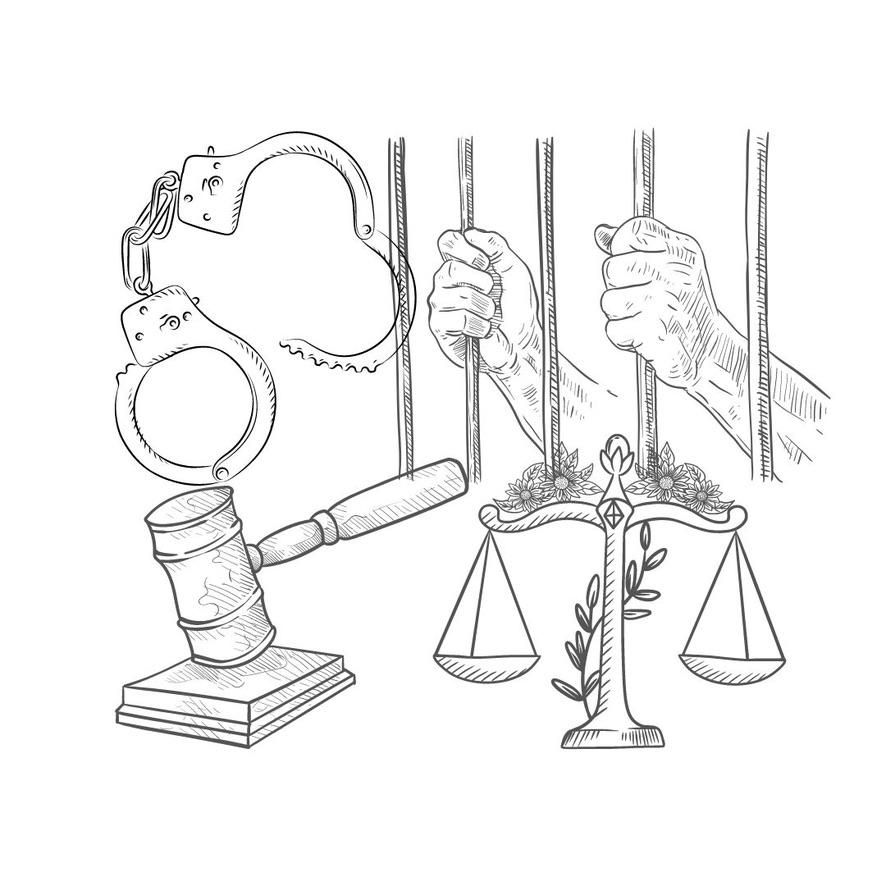Missouri, a state whose governing authority clings to the sanctity of life, executed Marcellus “Khaliifah” Williams by lethal injection on Tuesday, Sept. 24, 2024, with the permission of the U.S. Supreme Court. The death penalty has long been a debated issue in the United States concerning its morality, fairness and efficacy. Williams’ case offers insight into the horrific and corrupt criminal justice system. After a long fight for clemency and multiple calls for him to be spared the death penalty, with surmounting evidence of doubt, Williams was denied a stay of execution. Williams’ execution is an injustice and travesty, and there is no place in the justice system for the death penalty.
In 2001, Williams was convicted of the 1998 murder of former St. Louis Post-Dispatch reporter, Felicia Gayle, and sentenced to death. For more than two decades on death row, Williams maintained his innocence. No forensic or physical evidence has ever tied Williams to the crime — he was not matched to the DNA found on the murder weapon nor was he matched to the footprints or hair found at the crime scene. It was also found that the murder weapon had been mishandled in the trial as DNA evidence matched that of members of the prosecution, the credibility of key witness testimonies had been called into question, and evidence of racial bias within jury selection had been shown. The case was filled with racism and errors.
With Williams, the lack of evidence and trial errors has continuously raised serious doubt about his supposed guilt. The execution of Williams had been postponed first in 2015 and again in 2017. With the mounting doubt and concern surrounding the case, in 2017, former Missouri Gov. Eric Greitens appointed a board to review the evidence and determine whether a condemned person should be executed. This intervention is not guaranteed; it only occurred due to advocating and petitioning by groups like the Innocence Project. It rarely happens, especially in the case of Missouri, a state with a high number of executions. In 2023, current Missouri Gov. Mike Parson dissolved the Board of Inquiry for Williams before it had produced a report on his innocence claim.
Williams’ attorneys shared that they considered his conviction a “grave miscarriage of justice.” Leading up to his execution, the prosecutor’s office had made a motion to vacate the sentencing and suggested he was wrongfully convicted. In the clemency petition, Gayle’s family stated it “defines closure as Marcellus being allowed to live” and that “Marcellus’ execution is not necessary.” Despite these efforts, Missouri Attorney General Andrew Bailey fought to have Williams executed. The Missouri Supreme Court, the U.S. Supreme Court and pro-life Parson denied a stay of execution — resulting in the execution of Williams.
Thousands of Missouri natives and others around the nation followed the case and attempted to contact the governor’s office to halt the execution. Congresswoman Cori Bush sent a letter to Parson asking for clemency and released a statement condemning the final decision to end Williams’ life.
The irreversibility of the death penalty allows for lives to be lost due to judicial errors or prosecutorial misconduct. Mass incarceration and the criminal justice system are used to maintain racialized social control, disproportionately affecting Black and brown men and those of lower socioeconomic backgrounds. The death penalty is applied in a discriminatory manner. It is not a deterrent to crime. It is a notoriously expensive system whose resources could be allocated toward restorative programs and more humane approaches to justice. Williams is one of many who have faced or will face execution this year. In general, the death penalty needs to be abolished.
Williams was a father, a devout Muslim, an imam for prisoners and a poet. His last statement was, “All Praise be to Allah In Every Situation!!!” Regarding Williams, the death penalty and innocence, writer Hanif Abdurraqib shared his thoughts: “To be so easily seduced by an investment in innocence recreates and reinforces a binary where someone deserves to be executed more or less than someone else.” No one deserves the death penalty. No one deserves to be executed. This case highlights the inherent flaws in our system and underscores the urgent need for its abolishment.
Indira Kar, FCRH ’25, is an international studies major from St. Louis, Mo.











































































































































































































Beth Busciglio • Oct 14, 2024 at 3:47 am
I signed a petition to stop the execution. I just knew without a doubt with no evidence against him and so much evidence not against him along with all the errors and misconduct with the courts in his case that there was no way he’d be executed. I don’t watch the news to much it’s to depressing but I saw his denial and thss as t he was being executed in one hour from them in tv and I wept with both sadness and anger. I still think when he is proved innocent (and I’d damn sure continue to prove him innocent and when he is the judge should be put on trial for murder because that’s what it was. May God both bless and be with all his loved ones and he be in the hands of Alah